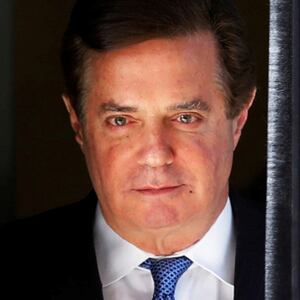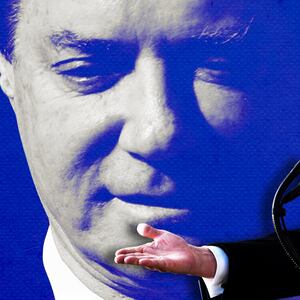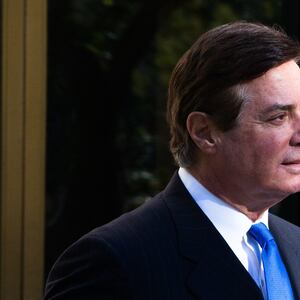Paul Manafort’s sentencing in federal court on Wednesday appeared to be the latest move in a long chess match. But just 30 minutes later, another move was played when new charges against him were unsealed in New York.
U.S. District Judge Amy Berman Jackson sentenced President Donald Trump’s former campaign chairman to 43 months in prison following his guilty plea to two counts of conspiracy, ending his federal case in the District of Columbia. The crimes were part of his scheme to earn fees for political consulting in Ukraine without paying taxes on the income in the United States. Manafort hid his lobbying work from the U.S. government by failing to register as an agent of a foreign government and depositing his earnings in foreign bank accounts that he failed to report. He used wire transfers from the bank accounts to fund a lavish lifestyle, including expensive real estate, landscaping, home improvements and expensive custom-made suits. He laundered $55 million through these accounts and underpaid his income taxes by $6 million. When his clients fell out of power and the work dried up, he obtained cash by mortgaging his properties, making false statements on documents to qualify for the loans.
Judge Jackson imposed part of her sentence on top of the 47-month sentence handed down last week by Judge T.S. Ellis in the Eastern District of Virginia, where Manafort was convicted at trial for related crimes. Cases were brought in the two different districts because some of the criminal acts were committed in each district, and Manafort declined to waive venue. Combined, the sentences mean that Manafort will spend a total of seven and a half years in prison.
ADVERTISEMENT
The charges against Manafort were filed by Special Counsel Robert Mueller, whose mandate is to investigate links between Russia and the Trump campaign relating to interference with the 2016 presidential campaign, as well as matters that arise or may arise directly from that investigation. The charges against Manafort fell into this second category, and were likely leveled against him in hopes of persuading Manafort to cooperate against others in exchange for leniency.
Cooperation didn’t pan out for Mueller against Manafort, who was a potentially valuable source of information in light of his reported relationships with Russian oligarchs, his position as campaign chair during the summer of 2016, when a portion of the party platform was changed to favor Russia, and his attendance at a meeting at Trump Tower in June 2016 with Russians for the stated purpose of obtaining disparaging information about Trump’s campaign opponent, Hillary Clinton.
But just when Manafort’s cases were over, Manhattan District Attorney Cyrus Vance charged Manafort in state court in New York. The timing could not have been a coincidence. What to make of these new charges against Manafort?
One obvious point of speculation is that these new charges were filed to prevent Manafort from escaping accountability for his crimes through a pardon. Other former Trump associates, such as former National Security Adviser Michael Flynn, former deputy campaign chair Rick Gates and former attorney Michael Cohen, have pleaded guilty and agreed to cooperate with the special counsel. Manafort, in contrast, has not. Manafort’s plea agreement in the District of Columbia included a cooperation provision that gave him an opportunity to earn a reduction in his sentence by providing substantial assistance in the investigation of others, but prosecutors discovered that while feigning cooperation, Manafort lied to investigators, and his deal was rescinded, causing some to speculate that Manafort is angling for a pardon from President Trump.
President Trump has remained supportive of Manafort throughout his prosecution, tweeting about his respect for such a “brave man,” who refused to “break.” Trump has used his pardon power in the past to absolve Sheriff Joe Arpaio of contempt of court and political commentator Dinesh D’Souza for campaign finance crimes, among others, showing that he is not afraid to use the power for what some may see as political causes. The president has a virtually unfettered power to pardon individuals who are convicted of crimes as a show of mercy. The one limitation on his pardon power is that while he may use it for people who have been convicted of federal crimes, he has no such power over state crimes.
That’s where state charges against Manafort can work as a backstop. The Manhattan DA’s indictment charges 16 counts, alleging mortgage fraud, falsifying business records and a scheme to defraud. While New York’s protective double jeopardy rules may create some litigation risk for the fraud charges, the counts for falsifying business records are unique to state law and seem unlikely to pose the same challenge.
Is Vance’s goal simply to ensure that Manafort is held accountable by facing prison time for his crimes? That alone would be a worthy goal for a defendant whose crimes were as pervasive and sophisticated as Manafort’s. Or is Vance instead thinking that by applying more pressure on Manafort, he can do what Mueller could not—convince him to cooperate by neutralizing President Trump’s pardon power.
Checkmate?









